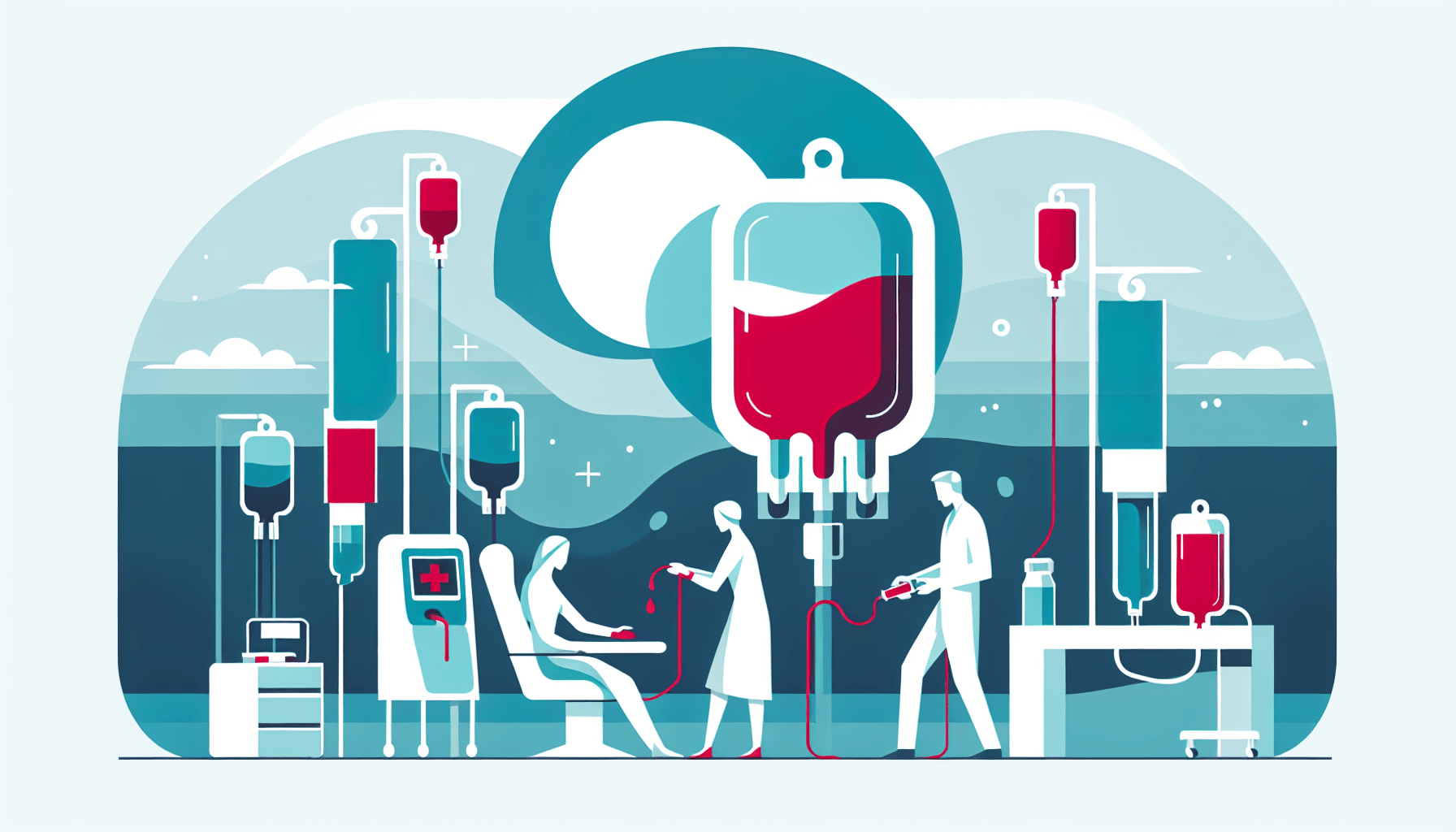A blood transfusion is a medical procedure that involves adding blood to your body after an illness or injury. If your body is missing one or more components of healthy blood, such as red blood cells, white blood cells, plasma, or platelets, a transfusion can help replenish what your body needs. Around 5 million Americans receive blood transfusions each year, and the procedure is generally safe.
Reasons for Needing a Blood Transfusion
There are several reasons why you might need a blood transfusion, including:
Significant blood loss due to major surgery or a serious injury
Bleeding in the digestive tract caused by an ulcer or other condition
Illnesses like leukemia or kidney disease that cause anemia (low red blood cell count)
Cancer treatments such as radiation or chemotherapy
Blood disorders or severe liver problems
Understanding Blood Types
For a blood transfusion to be safe and effective, the blood you receive must be compatible with your own blood type (A, B, AB, or O). If not, your body's antibodies will attack the foreign blood cells, causing serious complications. Blood banks carefully screen donated blood for type, Rh factor (positive or negative), and any potential infectious agents.
Type O blood is often called the "universal donor" type because it can be given to almost anyone needing a transfusion. Conversely, individuals with type AB blood are considered "universal recipients" as they can receive any blood type safely. If you have Rh-negative blood, you can only receive Rh-negative blood.
Common Types of Blood Transfusions
The most common types of blood cell transfusions include:
Red blood cell transfusion: Used to treat anemia or iron deficiency.
Platelet transfusion: Given when the body doesn't have enough platelets, often due to cancer or cancer treatments.
Plasma transfusion: Helps replace blood-clotting proteins, typically after severe bleeding or in cases of liver disease.
What to Expect During a Blood Transfusion
Blood transfusions are usually performed in a doctor's office or hospital setting. The new blood is delivered through an IV line and needle, and the process can take anywhere from 1 to 4 hours, depending on the amount of blood needed. During the transfusion, you will be closely monitored for any signs of complications.
Potential Risks and Complications
While blood transfusions are generally safe, there are some potential risks and complications to be aware of, including:
Fever: A mild fever within 1-6 hours after the transfusion is usually not serious, but if accompanied by nausea or chest pain, seek medical attention.
Allergic reactions: Itching and hives can occur even with the correct blood type. These reactions typically happen during or shortly after the transfusion.
Acute immune hemolytic reaction: A rare but serious complication where the body attacks the transfused red blood cells, causing fever, chills, nausea, chest pain, lower back pain, and dark urine.
Delayed hemolytic reaction: Similar to an acute reaction but develops more gradually.
Anaphylactic reaction: A potentially life-threatening reaction occurring within minutes of the transfusion, characterized by face and throat swelling, shortness of breath, and low blood pressure.
Transfusion-related acute lung injury (TRALI): A rare but potentially fatal reaction causing fever, low blood pressure, and lung damage.
Bloodborne infections: Despite thorough screening, there is a very small risk of contracting infections like HIV, hepatitis B and C, West Nile virus, or Zika virus.
Hemochromatosis (iron overload): Multiple blood transfusions can lead to excess iron in the blood, potentially damaging the heart and liver.
Graft-versus-host disease: An extremely rare but usually fatal complication in which transfused white blood cells attack the recipient's bone marrow, more likely in those with weakened immune systems.
If you have any concerns about receiving a blood transfusion, be sure to discuss them with your healthcare provider. They can help you weigh the potential benefits against the risks and make an informed decision about your treatment.
For more information on blood transfusions and related topics, visit:
The Bottom Line
Successful transfusions depend on meticulous blood typing and close monitoring, especially during the critical first hour when most reactions manifest. While generally safe, patients receiving frequent transfusions need ongoing assessment for iron accumulation and organ effects. If you're facing a procedure requiring transfusion, Doctronic can help address your specific concerns and preparation questions.



